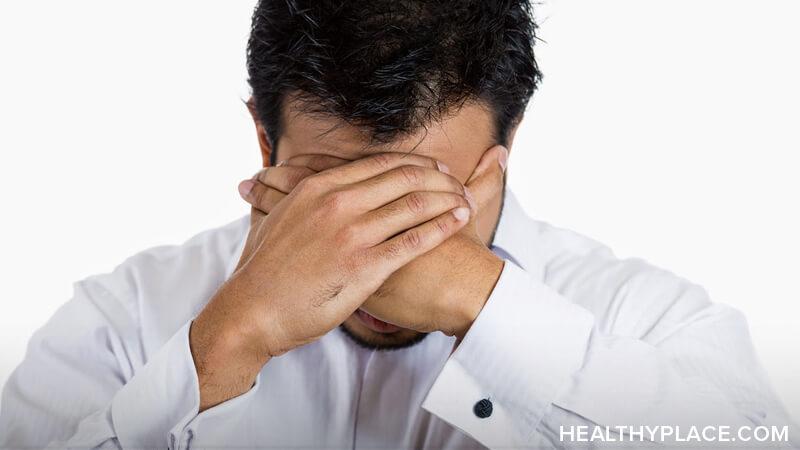Feeling Guilty About Self-Harm Scars

Feeling guilty about self-harm scars isn't uncommon—but it isn't necessary, either. Accepting your scars takes time, but it's an important part of healing.
When Showing Your Self-Harm Scars Incites Guilt
One of the many emotions that self-injury often stirs up is shame. It's hard enough to bear when you're actively self-harming, but sometimes it can linger even when you've stopped and begun to heal.
Showing your self-harm scars can trigger guilt in a number of situations. Maybe you hate uncovering them around your family—even if your family is aware of your history—because of the bad memories associated with those scars. Children can be especially tricky to be around. I remember how terrified I used to be that my niece and nephew would ask about mine ("Ways to Explain Self-Harm Scars to Children").
Maybe it's your friends you don't want to show them to—maybe you worry about making them uncomfortable, even if they try to be supportive. Maybe it's your coworkers or peers who make you want to cover up the scars.
Even complete strangers might make you think twice about leaving your scars uncovered, even if no one says a word or even if no one actually sees them. The mere thought that someone might see them and might react a certain way is a haunting "what-if" for some self-harmers, myself included.
Moving Past Your Guilt About Your Self-Harm Scars
It's not easy to overcome the guilt that self-harm scars can trigger, but know that it is possible.
Working with a therapist through this process is best, as they can be both an excellent sounding board and a trustworthy guide that you can rely on for sound advice while you heal. But if you're not ready or unable to take that step at this time, there are some things you can try on your own to change your perspective and begin to work through that guilt.
Journaling is my go-to technique; it's an excellent way to vent all that guilt, along with any sorrow, anger, or other difficult emotions that may be tangled up with it. Advanced journaling techniques like narrative reframing, meanwhile, have helped me deconstruct the negative thought patterns and replace them with healthier, more balanced ways of looking at things. Art and music can also be good ways to vent, regardless of your level of proficiency.
Exercise can be helpful as well. While it won't directly dispel your guilt, regularly moving your body—even if it's just a gentle walk or swim every day—can help you feel better, both physically and emotionally. To this day, even when I'm very busy, I try to get up and move around every so often because I know I will feel much worse by the end of the day if I don't.
Talking to someone, even if it's just a trusted friend or family member, also gives you a safe space to vent, as well as a valuable second opinion—one that will likely be kinder to you than your own. Support groups, whether local or online, are also an option.
And in general, try and practice good self-care to the best of your ability. Get out of bed before lunch. Shower or bathe every day. Eat a balanced diet. And most of all, treat yourself with compassion.
Your scars are nothing to be ashamed of; after all, scars are what is left when wounds have healed.
APA Reference
Kim Berkley
(2022, July 14). Feeling Guilty About Self-Harm Scars, HealthyPlace. Retrieved
on 2026, March 3 from https://www.healthyplace.com/blogs/speakingoutaboutselfinjury/2022/7/feeling-guilty-about-self-harm-scars